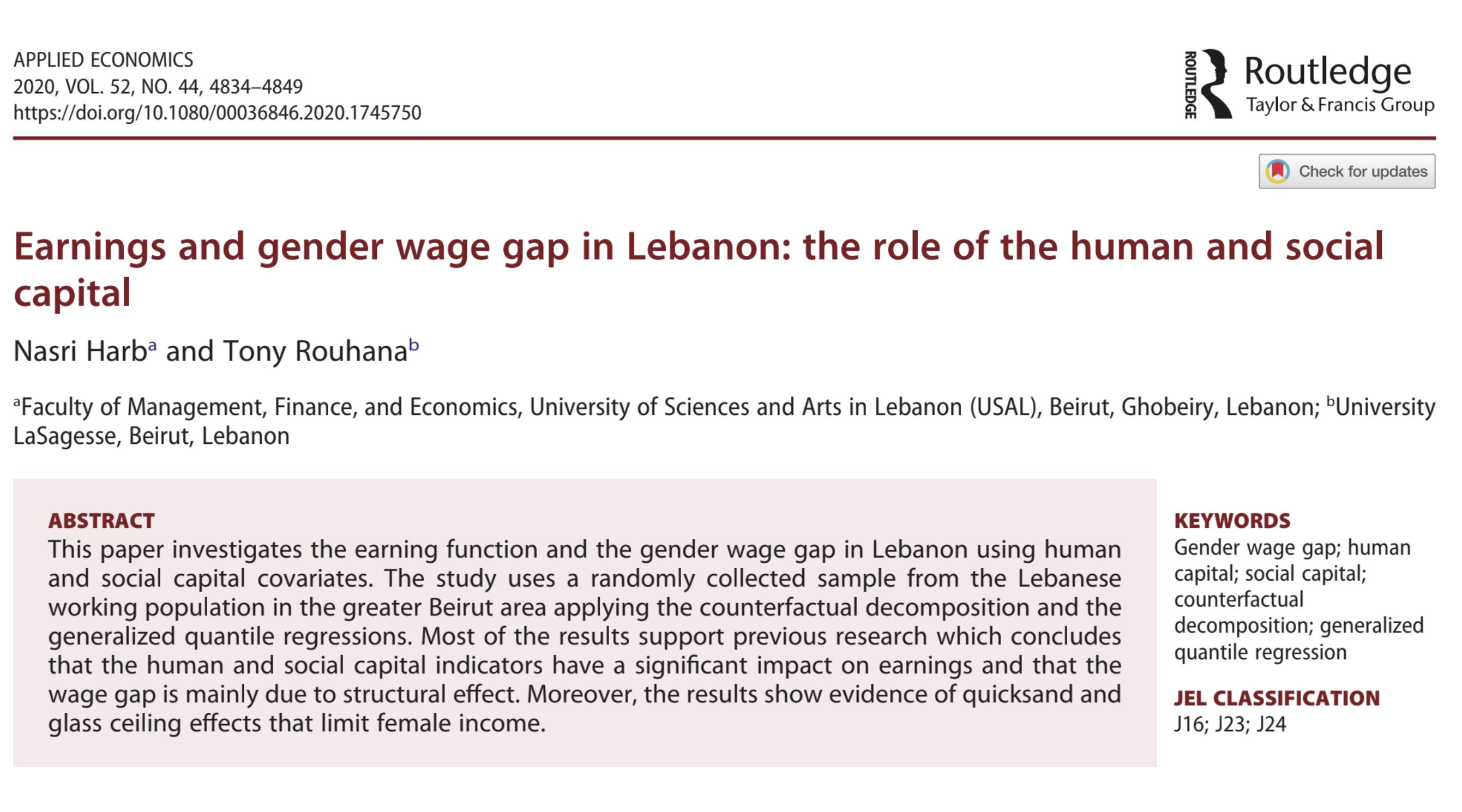Earnings and Gender Wage Gap in Lebanon: The Role of the Human and Social Capital
- Posted by USAL
- Date September 2, 2020

This paper investigates the earning function and the gender wage gap in Lebanon using human capital (such as education and its quality, mastering of foreign languages, and experience,…), and social capital (relationship and trust of friends, relatives, neighborhood and politicians) covariates.
The study uses a randomly collected sample from the Lebanese workers in the greater Beirut area. The data collection took place in January 2019.
The paper uses advanced technical quantitative methods. The results support previous research. The paper concludes that the level human capital influences positively the level of earnings. Specifically, the level of education and the knowledge of a foreign language, especially English, play an important role in determining the monthly earning. Graduating from a tier-one university brings about a significant higher salary.
The paper develops a few indicators for measuring the social capital. These indicators show that the social capital affects male more than female workers. A larger network of non-neighborhood friends and of politicians has a positive impact on individual earnings.
The paper shows also that female workers earn 16% – 19%, on average, less than their male counterparts taken into account the human and social capital.
This paper can be further extended by two dimensions: firstly, by considering the impact of social and human capital on the opportunity of finding a job and secondly, by exploring a larger sample across the whole urban areas of the country.
Previous post
A first step in the evaluation of the cyber-security in the perimeter of Lebanon
Next post




